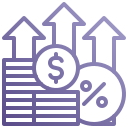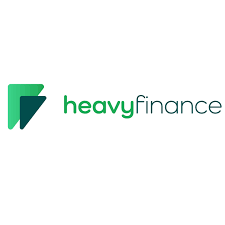European economies face many issues. What are the growing risks for investors?
Economic conditions have become much less stable over the last few years. After a long period of stability, we are now experiencing significant inflation, shortages of goods, and rising interest rates. There are many causes for this, including Covid-19, the Russia/Ukraine conflict, and the tapering of Central Bank stimulus packages.
So what are the most important risks that investors need to consider right now? What’s the outlook? How can investors reduce risk and benefit from the new economic conditions?


Rising interest rates
In recent months, the European Central Bank has increased rates by 1.25%. The financial markets predict rates will increase by another 1.9% over the next 12 months. The Bank of England has also been increasing rates quickly, with several more rises expected to come. The rate rises are a reaction to increasing inflation and the removal of the monetary stimulus provided by central banks. There is a risk that interest rates could increase well beyond the levels predicted by financial markets if inflation remains high. For investors, this means that shorter-term credit investments are currently more attractive than long term investments because they can benefit from future rate increases if this happens.

High energy costs
Gas, fuel and electricity prices have been skyrocketing. This is primarily because of the loss of gas imports from Russia, together with government environmental policies in several countries. Some governments (such as the UK) plan to subsidise energy costs for consumers, which will increase their budget deficits. Even with subsidies, most households across Europe will pay very high prices for energy for the foreseeable future. High energy costs can reduce the cash that individual borrowers have available to repay their loans, which increases the risk of loans defaulting. Energy costs can also be important components of costs for many businesses, such as transport companies and farmers. If they cannot pass on these costs to their customers, businesses can be at risk of failure.

Inflation
Most European countries have been experiencing significantly higher rates of inflation than seen for many years. This is partly due to higher energy costs, but other factors have contributed to this too. Product shortages linked to Covid-19 disruption, and the depreciation of the Euro and Pound have also been contributing factors. Higher inflation means that it is more important than before to keep as much funds as possible fully invested. Funds left in bank savings accounts are likely to fall in value in real terms as inflation is running higher than typical interest rates. This means that investing in higher returning opportunities (such as P2P, equities and crowdfunding) is an important way of fighting against the impact of inflation.

Uncertain property outlook
Residential property prices have been strong over the last year. Most European countries have seen price rises of 5-15%. The Baltic region has been particularly strong, with gains of 20%. If high inflation continues, this could lead to further property price increases. However, there are some potential headwinds. Central banks are likely to raise interest rates. Higher mortgage costs reduces affordability. If interest rates rise much more than expected this could eventually cause prices to fall. The outlook for commercial property (in particular office buildings) is particularly uncertain. Valuations are expected to fall because of the oversupply caused by the adoption of 'working from home'. Many countries are now also oversupplied with retail space, as online shopping has been growing in popularity.

Shortages
The war in Ukraine has led to shortages of many goods and commodities besides energy. It was an important producer of grains for example. Supply disruption has led to the price of wheat almost doubling over the last two years. While this is a negative for consumers, it has resulted in profitable conditions for farmers in areas such as the Baltic region. Another industry that has been affected by shortages is the construction industry. This has led to higher costs and some delays to projects. This has made property development activity particularly challenging over the last two years, and adds greater risk to any new developments that are taking place.

Ways to react to current market conditions

Make your money work harder
With interest rates and inflation rising, it's a good time to take a fresh look at your total savings and investment portfolio. If you are holding cash, are you receiving an interest rate that is competitive? Bank deposit rates have been increasing quickly in recent months, and are no longer negative in the Eurozone. Another question to ask is - are you holding the right amount of cash? Cash can lose value quickly during an inflationary period. Increasing the allocation of savings from cash into investments such as P2P lending can increase the interest you earn and also reduce the risk that inflation will erode the value of your savings.

Reduce duration
There is high uncertainty over the level of future interest rates. The financial markets are predicting a strong increase in interest rates will occur in most countries over the next 4 years. However, there is a possibility that rates will increase by even more than is expected. Buying fixed interest assets, such as P2P loans, with long durations (over 2 years) is risky at the moment. This is because there is a fairly strong risk that rates will increase further than expected. This means that an investor could miss out on the higher level of future interest available, and will hold a loan with a market value that is below the cost price.

Rebalance investments
We have listed above some of the risks that need to be managed carefully in the current environment. Some types of companies and assets will perform better than others over the next two years. Rather than reacting to poor performance, sophisticated investors change their investment strategies, and portfolio weightings when big changes to economic conditions are expected to take place. P2P loans that are now riskier include unsecured consumer loans, and development finance. Below, we have listed some P2P and crowdfunding sites that could perform better than others over the next two years, and the reasons why.
Which investment sites offer protection against current conditions?
HeavyFinance lends to European farmers. They secure their loans against farm machinery and also land. State agencies also provide guarantees on some loans. Interest rates are typically around 12%. So why do we think HeavyFinance could perform well in current conditions? Almost 80% of its borrowers are grain farmers. We spoke with HeavyFinance CEO Laimonas Noreika about how his clients are doing. He said that farmers had to pay more than usual for fuel and fertilisers this year, but this has been more than offset by the increased revenues from grain sales at current prices. In current market conditions, his clients are profitable, and he expects many to fully repay their loans in the next couple of months from the proceeds of this year’s harvest. We also note that in an inflationary environment, the values of the farmland and machinery used to secure loans should rise, or at a minimum not go down, providing investors with some pretty solid protection against losses.
Lande is another lender that primarily provides loans to the agriculture sector. They secure most of their loans on farmland, grain stores, and equipment. We spoke with Lande CEO Nikita Goncars who noted that demand for farmland was already high before the Russian invasion of Ukraine, and there is now very limited supply. This dynamic is good for investors in Lande loans, many of which are secured on farmland. Nikita also notes that grain prices are generally priced in USD, which is a further positive for farmers in Europe because of the strength of the USD against European currencies over the last six months. In an inflationary environment, Nikita expects the value of collaterals to grow too, which reduces the risk of losses for investors.
We think the investments offered by InRento are also interesting in the current environment. InRento gives investors exposure to properties located primarily in Lithuania, which has been a very strong property market. Investors receive rental income of approximately 7-8% per annum. They also share in any capital gains made on the property. So far, two projects have exited, with annual returns of 20% generated for investors. All the properties offered so far on InRento have been of high quality. We like the structure – investors receive a good level of annual cash flow, while potentially taking part in significant upside, particularly if there is an inflationary environment over the next few years.
Reinvest24 has a very similar offering to InRento, but it operates in more countries and has a longer track record. Investors generate returns from rental income, and also from capital gains. The management team search carefully for opportunities that give investors attractive, discounted purchase prices versus typical market prices. So far, Reinvest24 has exited 27 properties, generating returns to investors of 14-20%. We think that is a very strong track record, and they have achieved it because the management team is capable and experienced.



